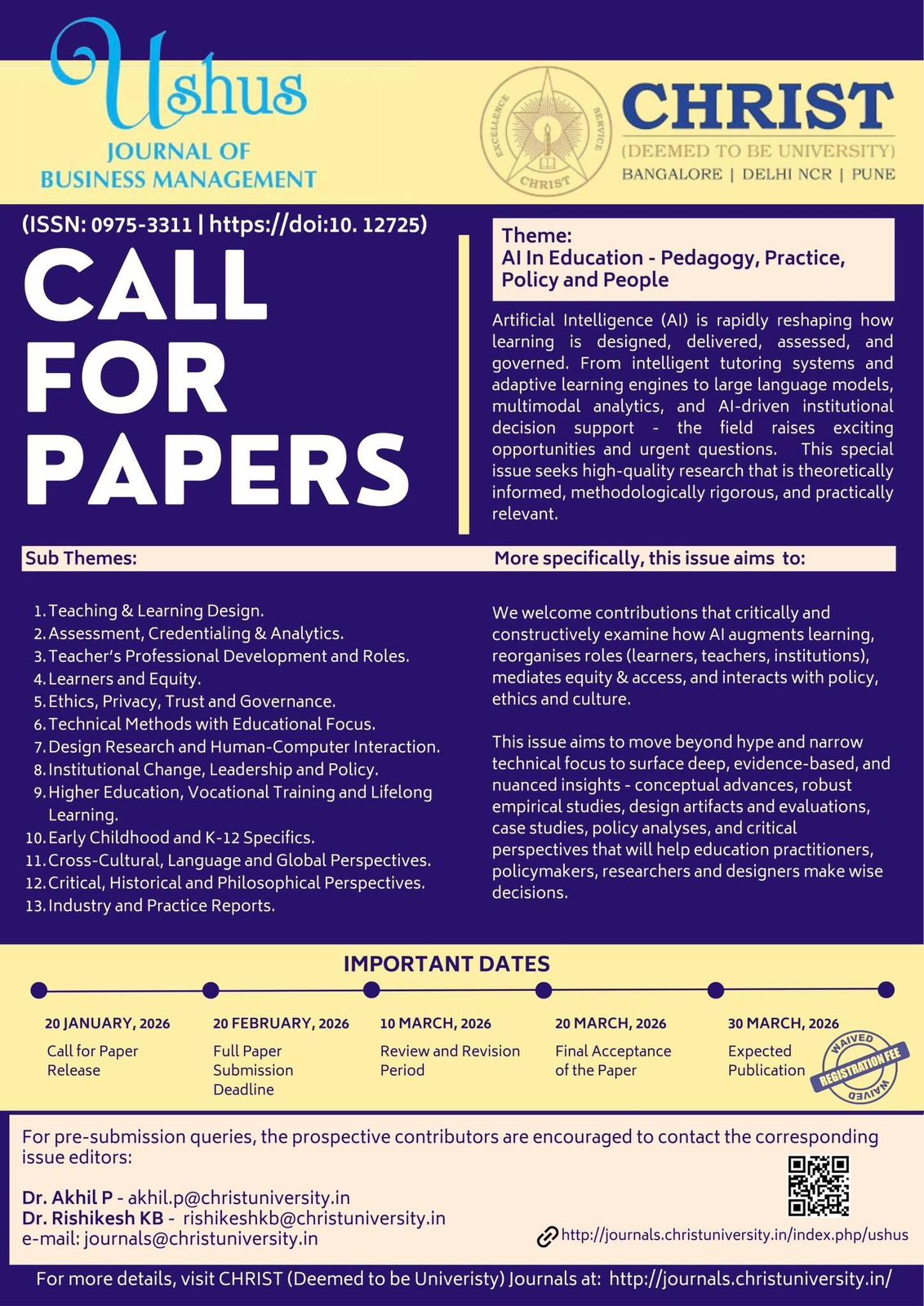Influence of Globalization on Online Business: A conceptual study with reference to Amazon and Alibaba e-commerce site
DOI:
https://doi.org/10.12725/ujbm.55.3Keywords:
Globalization, Internet, E-commerce site, Trade Policy, Marketing StrategyAbstract
Globalization helps in identifying export markets, doing business beyond boundaries, developing oversea contacts, establishing presence in their markets. It also refers to the spread of job, product, technology, and service by doing cross border trades. In this Internet era the use of electronics for doing business transactions have been used globally. India has almost 700 million internet users in 2020. In this conceptual paper the researchers were trying to find out the impact of globalization on two renowned e-commerce sites with reference to India. Amazon and Alibaba were chosen for the study. Different Trade bodies’ policies studies were also analyzed to find out the ease of doing business policies. Finding of the study shows that Amazon has utilized thinking globally but acting locally strategy in Indian Markets and whereas Alibaba has used its previous model in India, now focusing on vertical e-commerce model and smaller deals as its future strategy. Finding also shows that Amazon and Alibaba have recognized the diversity of the Indian people and with a purpose has used this understanding to spread its market share. The two-e-commerce giant, their strategies and working model is used to reach the conclusion of the study.
References
Amin, S. (1996). The challenge of globalization. Review of International Political Economy, 3(2), 216-259.
Bartelson J. Three Concepts of Globalization. International Sociology. 2000; 15(2):180-196
Beck, U. (2018). What is globalization?. John Wiley & Sons.
Brooks, S. G. (1999). The globalization of production and the changing benefits of conquest. Journal of Conflict Resolution, 43(5), 646-670.
Fischer, S. (2003). Globalization and its challenges. American Economic Review, 93(2), 1-30.
Hirst, P., & Thompson, G. (2002). The future of globalization. Cooperation and conflict, 37(3), 247-265.
Kraemer, K. L., Gibbs, J., & Dedrick, J. (2002). Impacts of globalization on e-commerce adoption and firm performance: A cross-country investigation. Center for Research on Information Technology and Organizations, University of California, Irvine.
Palacios, J. J. (2001). Globalization and e-commerce: Growth and impacts in Mexico
Shamir, R. (2005). Without borders? Notes on globalization as a mobility regime. Sociological theory, 23(2), 197-217.
Stiglitz, J. E. (2017). The overselling of globalization. Business Economics, 52(3), 129-137.
Online Sources
Downloads
Published
How to Cite
Issue
Section
License
Copyright (c) 2021 Veto Dey, Glen Francis

This work is licensed under a Creative Commons Attribution-NonCommercial-NoDerivatives 4.0 International License.



